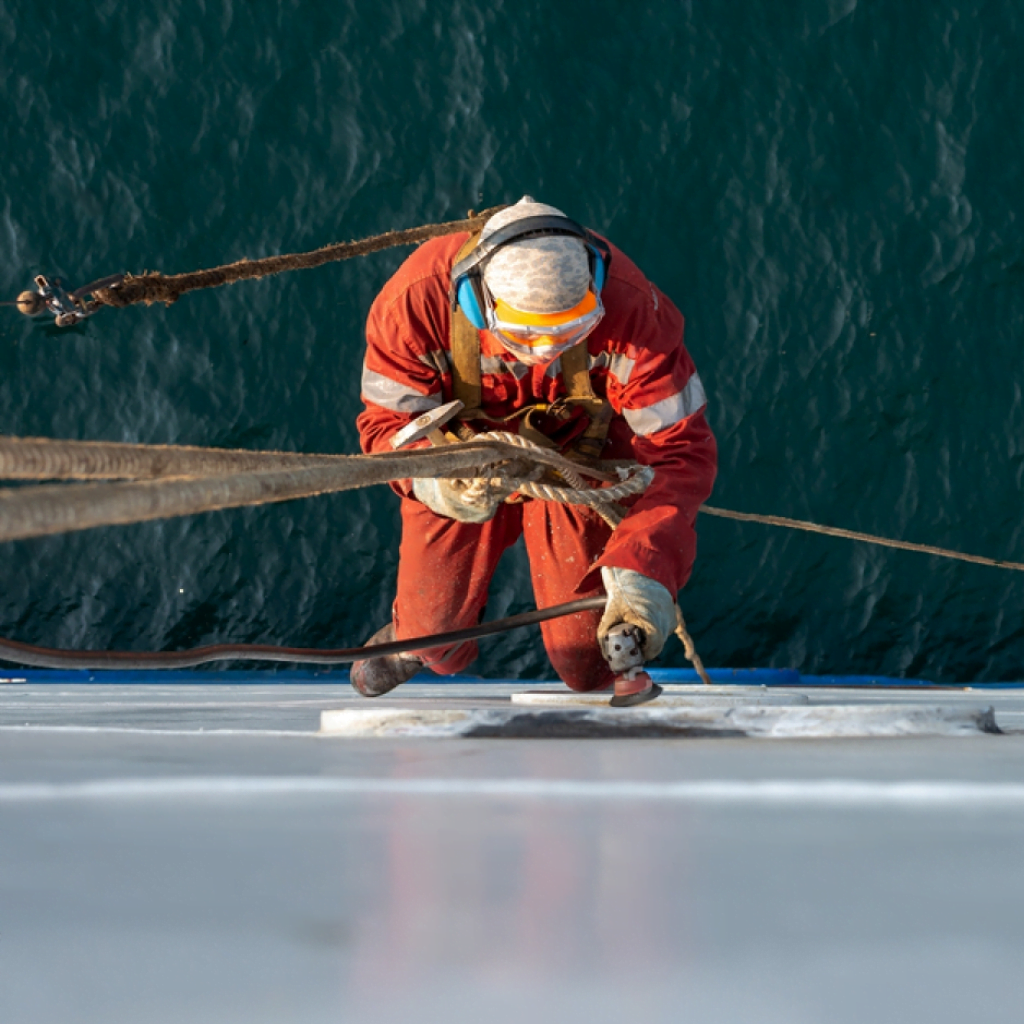Training Sessions
Home / DAY IN THE LIFE / Training sessions
A Guide to Merchant Navy Training Sessions
While combat systems and aviation operations are specific to military vessels, merchant navy operational duties encompass a vast array of responsibilities that ensure the safe, efficient, and lawful passage of cargo ships, tankers, and cruise liners across the world’s oceans. These duties can be broadly categorized into three main areas: Deck Operations, Cargo Operations, and Bridge Operations.
A Foundation for Success: Basic Training
Just like any demanding profession, the Merchant Navy begins its training process with a solid foundation. Basic training programs introduce new recruits to the realities of life at sea, equipping them with fundamental skills and knowledge. These programs typically last a few weeks to several months, depending on the specific institution and chosen pathway.
Essential Elements of Basic Training:
Safety Procedures: Safety is paramount at sea. Basic training emphasizes fire prevention and firefighting techniques, emergency response protocols, lifeboat drills, and personal survival skills, ensuring all crew members are prepared for any unforeseen situation.
Seamanship Fundamentals: Understanding the workings of a ship is crucial. These programs cover basic seamanship skills, such as knot tying, sail handling (if applicable), watchkeeping procedures, and safe operation of onboard equipment.
Maritime Knowledge: Navigating the vast ocean requires a strong foundation in nautical science. Trainees learn essential principles of navigation, meteorology, ship stability, international maritime regulations (COLREGs), and basic cargo handling procedures.
Physical Fitness: Life at sea can be physically demanding. Basic training incorporates physical fitness regimes to ensure recruits possess the necessary stamina and strength to handle strenuous tasks onboard.


STCW Certification: The International Standard
The International Maritime Organization (IMO) establishes the Standards of Training, Certification and Watchkeeping for Seafarers (STCW) convention. This globally recognized set of regulations mandates the minimum qualification standards for all seafarers.
STCW courses encompass a wide range of essential skills, including:
Navigation: Advanced celestial and electronic navigation techniques, including chartwork, radar operation, and Electronic Chart Display and Information System (ECDIS) usage.
Collision Avoidance: Collision avoidance procedures are critical to ensure safe passage. These courses cover radar usage for collision avoidance, maneuvering techniques, and international maritime communication procedures.
Survival Techniques: Seafarers must be prepared for any eventuality. STCW courses cover survival at sea techniques, including lifeboat operation, search and rescue procedures, and first aid training.
Firefighting: Fire prevention and response skills are essential. Advanced firefighting techniques and the use of firefighting equipment are covered in detail.
Cargo Handling: Safe and efficient cargo handling is crucial. Depending on the chosen specialization, additional training may be required for specific cargo types like hazardous materials.
Deck and Engine Department Specialization
Once the foundation is laid, aspiring officers and crew members delve into specialized training programs specific to their chosen department.
Deck Department:
The deck department is responsible for the safe navigation and operation of the vessel. Deck officers undergo rigorous training in navigation, ship stability, cargo handling, international maritime regulations, and meteorology. Additional training qualifies them for specific roles, such as watchkeeping officer, chief mate, and ultimately, captain.
Engine Department:
The engine department ensures the smooth operation and maintenance of the ship’s propulsion systems and auxiliary machinery. Engineer officers receive in-depth training on marine engines, electrical systems, boiler operations, and maintenance procedures. Specific certifications allow them to progress to roles like third engineer, second engineer, and ultimately, chief engineer.


Leadership and Management Development
The Merchant Navy offers excellent career progression opportunities for those seeking leadership roles. Advanced training programs equip aspiring captains, chief mates, and other senior officers with the necessary skills to effectively lead and manage a diverse crew onboard.
These programs focus on:
Leadership and Communication: Effective leadership is crucial for maintaining order and ensuring crew safety. Training programs emphasize communication skills, fostering teamwork, conflict resolution, and motivational leadership techniques.
Bridge Resource Management (BRM): BRM training promotes safe and efficient ship operation by fostering effective teamwork on the bridge. It emphasizes communication, situational awareness, and decision-making skills in a dynamic maritime environment.
Maritime Law: Understanding maritime law and regulations is essential for senior officers. These programs delve into international maritime law, commercial shipping regulations, and port state control procedures.
Pre-sea Training Programs (Ratings):
Diploma in Nautical Science/Marine Engineering: These one-year programs cater to students who have completed their secondary education. They provide a strong foundation in nautical science or marine engineering principles, along with basic seamanship skills and STCW certification. Graduates typically join merchant vessels as ratings (deck or engine department) and gain practical experience at sea while preparing for officer certification exams.
Graduate Marine Engineering (B.Tech Marine Engineering): This four-year university degree program equips students with a comprehensive understanding of marine engineering principles. Graduates qualify for the Class IV Marine Engineer Officer Certificate after completing mandatory sea service, allowing them to pursue officer-level positions in the engine department.
Bachelor of Science (Nautical Science): This three-year university program provides a thorough grounding in navigation, meteorology, ship operations, and maritime law. Graduates qualify for the Second Mate (Foreign-Going) Certificate after fulfilling mandatory sea time requirements and passing competency exams, opening doors to officer positions in the deck department.
DNS (Diploma in Nautical Science) Program (India): This one-year program offered by the Indian Maritime University (IMU) is specifically designed for the Indian Merchant Navy. Upon successful completion and the required sea time, graduates receive a B.Sc. (Applied Nautical Science) degree and the Second Mate (Foreign-Going) Certificate.
Direct Entry Programs (Officers):
Cadetship Programs: Many shipping companies offer cadetship programs for high school graduates with strong academic records. These programs combine theoretical studies with practical experience onboard vessels. Cadets typically rotate between classroom learning and onboard placements, gaining valuable practical experience and earning necessary qualifications under the guidance of experienced officers.
Graduate Entry Programs: Some universities offer graduate entry programs in nautical science or marine engineering specifically designed for individuals with relevant science or engineering degrees. These programs provide the necessary maritime-specific knowledge and skills, allowing graduates to qualify for officer positions after completing sea time requirements and competency exams.
Each training path has its own advantages and disadvantages. Pre-sea training programs offer a faster entry point but may require additional experience for officer qualifications. Direct entry programs can take longer but provide a more structured path towards becoming an officer.


Continuous Learning: A Lifelong Commitment
The world of maritime operations is constantly evolving. Technological advancements necessitate ongoing professional development for Merchant Navy personnel throughout their careers. Regular refresher courses ensure officers and crew members stay updated on the latest regulations, safety procedures, and operational best practices.
Many institutions offer specialized training programs in areas like:
- Liquefied Natural Gas (LNG) Operations: The growing use of LNG as a marine fuel necessitates specialized training for handling and operating LNG-powered vessels.
- Ballast Water Management: Strict regulations governing ballast water discharge require crew members to be proficient in ballast water treatment systems.
- Cybersecurity Awareness: The increasing reliance on technology onboard ships necessitates training in cybersecurity best practices to protect against cyber threats.
Building a Rewarding Career at Sea
A career in the Merchant Navy offers a multitude of benefits. Travel enthusiasts can explore the world while earning a competitive salary. Those seeking responsibility can find challenging and rewarding leadership roles. Additionally, the Merchant Navy fosters a strong sense of camaraderie and teamwork within a global community.
However, life at sea also comes with its own set of challenges. Long periods away from family and friends can be demanding. The work can be physically strenuous, requiring long hours and adaptation to diverse weather conditions.
For individuals who thrive in a dynamic environment, possess a strong work ethic, and have a passion for the sea, the Merchant Navy offers a fulfilling and rewarding career path. By embarking on the right training program and committing to continuous learning, aspiring sailors can navigate their way towards a successful and enriching future on the open seas
